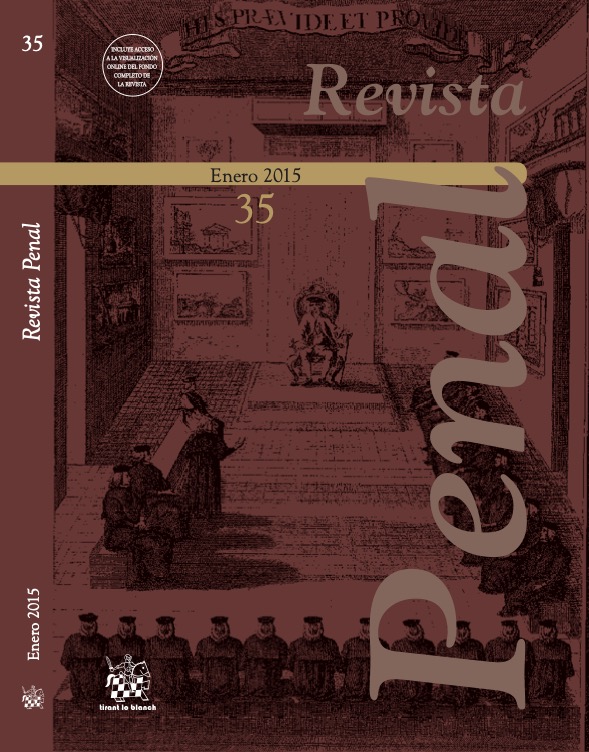Adecuación del proceso penal español a la fijación legal de la responsabilidad criminal de las personas jurídicas
DOI:
https://doi.org/10.36151/Keywords:
Corporate criminal liability, Corporations and spanish criminal procedure, Legal reformsAbstract
In the 2010 reform of the Penal Code one of the most important reforms introduced was the clear and blunt end of the principle societas delinquere non postest. From that point on, certain legal persons can passively take part in criminal proceedings and therefore eventually be charged, prosecuted and sentenced for committing any of the offenses set out in an expressed manner in the Penal Code. But, when implementing the changes to the criminal legislature the necessity to make appropriated adjustments to the Criminal Procedure Act was forgotten. An attempt at alleviating this deficit occurred a few months later with the Act of procedural streamlining measures but for the doctrine, jurisprudence and the Attorney General of the State, the partial character and a difficult understanding of the precepts of this act has created a fertile ground for interpreting current legal text and for aligning with different positions on the key issue, especially considering that, and when the past months are taken into account, it is foreseeable that the Proposed Code of Criminal Procedure of 2013 will never be enacted.



